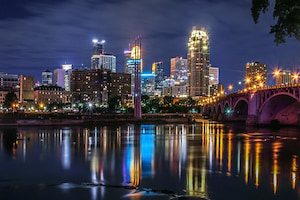
A new study found that legal cannabis sales have generated billions of dollars in revenues for state and local governments. This won’t come as a surprise to proponents of cannabis legalization, many of whom have long argued that legalizing marijuana for recreational use would benefit state economies. As more people come to recognize the economic advantages of legalization, more states may look to legalize marijuana as a way to increase tax revenues. What effect could this have on the U.S. cannabis industry? Keep reading to find out.
Recreational Marijuana Sales Boost State Economies
The Marijuana Policy Project (MPP), the nation’s top organization dedicated to legalizing cannabis in the United States, recently published the research results of a study of the economic impact of legal marijuana sales. That study found that state governments in Colorado, Washington, and other states where recreational marijuana use is allowed have officially reported around $8 billion in tax revenues coming directly from legal cannabis sales.
In addition to the $7.9 billion in state tax revenues coming from legal marijuana sales, the MPP study also found that local city and town governments have generated several hundred million dollars in tax revenues from recreational cannabis sales at dispensaries.
These figures are remarkable, especially considering that adult-use cannabis is not yet legal in most states. Moreover, many of the states where adult-use cannabis is legal only recently created their cannabis markets.
The Colorado Cannabis Economy
The creation of a viable cannabis economy, including the infrastructure necessary to sustain that economy, can take time. For example, in Colorado, adult-use cannabis was legalized in 2012, but sales at dispensaries did not start to occur until 2014. Since then, Colorado has generated more than $1.5 billion in tax revenues from legal cannabis sales. The sales tax rate on adult-use cannabis is 15 percent, which applies to both wholesale and retail. Since this does not include any local taxes on cannabis sales, some municipalities have generated additional revenues from retail cannabis sales: the MPP study found that Denver has collected more than $210 million.
The high tax rate for recreational marijuana sales, coupled with booming business for Colorado dispensaries, has had a profound effect on several important areas of state and local government. For instance, the MPP study shows that $404.5 million of the Colorado cannabis tax revenues have gone toward funding improvements of the state’s public school system.
Washington, Oregon, and Alaska Among States Generating Cannabis Sales Tax Revenues
Colorado is not the only state that has been financing major public policy programs and other parts of state and local government with revenues from the legal sale of adult-use cannabis. States like Washington, Oregon, and Alaska have also been setting records for recreational marijuana sales, which has led to record tax revenues. In Washington, where the retail sales tax rate on cannabis is incredibly high, more than $2.5 billion in tax revenues have come from dispensary sales since 2014. In Oregon, where legal recreational marijuana sales did not start to happen until 2016, more than $540 million in tax revenues have been generated. And in Alaska, annual cannabis sales tax revenues set a record of $27 million in 2020.
Since the November 2020 election, several states have passed new laws legalizing the recreational use of marijuana. More states could soon join them, as state legislatures across the country debate marijuana legalization measures. This would likely have a significant effect on the economies in those states by creating a lot of jobs, in addition to providing the states with a boost to tax revenues.
Contact Scythian Cannabis Real Estate Today
Scythian Real Estate is a privately held cannabis real estate fund that has established relationships with the top cannabis operators in the country, including The Green Solution (Columbia Care), Grassroots Cannabis (Curaleaf), and LivWell Enlightened Health. If you are a cannabis operator looking to add capital, Scythian may be able to assist you. For more information, send us an email.
PLEASE NOTE THAT THIS BLOG IS NEITHER AN OFFER TO SELL NOR A SOLICITATION OF AN OFFER TO BUY SECURITIES IN SCYTHIAN REAL ESTATE FUND.









